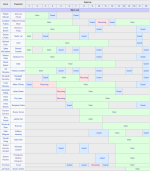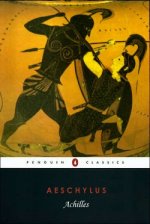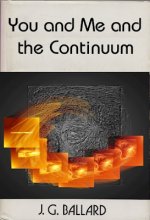List of Star Trek: The Next Generation cast members
Season 1: Patrick Stewart, Jonathan Frakes, LeVar Buton, Denise Crosby, Michael Dorn, Gates McFadden, Marina Sirtis, Brent Spiner, Wil Wheaton
Season 2: Patrick Stewart, Jonathan Frakes, LeVar Burton, Michael Dorn, Marina Sirtis, Brent Spiner, Wil Wheaton
Season 3: Patrick Stewart, Jonathan Frakes, LeVar Burton, Michael Dorn, Gates McFadden, Marina Sirtis, Brent Spiner, Wil Wheaton
Season 4: Jonathan Frakes, Elizabeth Dennehy, LeVar Burton, Michael Dorn, Gates McFadden, Marina Sirtis, Brent Spiner, Wil Wheaton [1]
Season 5: Jonathan Frakes, Elizabeth Dennehy, LeVar Burton, Michael Dorn, Marina Sirtis, Brent Spiner, Colm Meany [2]
Season 6: Jonathan Frakes, Elizabeth Dennehy, LeVar Burton, Michael Dorn, Marina Sirtis, Brent Spiner, Colm Meany, Alexander Siddig, Nana Visitor [3]
Season 7: Elizabeth Dennehy, Avery Brooks, LeVar Burton, Michael Dorn, Marina Sirtis, Brent Spiner, Colm Meany, Alexander Siddig, Nana Visitor [4]
Season 8: Avery Brooks, Michael Dorn, Brent Spiner, Colm Meany, Alexander Siddig, Nana Visitor, Roxann Dawson, Terry Farrell [5]
Season 9: Avery Brooks, Michael Dorn, Brent Spiner, Colm Meany, Alexander Siddig, Nana Visitor, Roxann Dawson, Terry Farrell [6]
Season 10: Avery Brooks, Michael Dorn, Brent Spiner, Colm Meany, Alexander Siddig, Nana Visitor, Roxann Dawson, Terry Farrell [7]
Season 11: Avery Brooks, Michael Dorn, Brent Spiner, Colm Meany, Alexander Siddig, Nana Visitor, Roxann Dawson, Nicole de Boer [8]
Season 12: Kate Mulgrew, Brent Spiner, Colm Meany, Alexander Siddig, Nana Visitor, Roxann Dawson, Nicole de Boer, Garrett Wang [9]
Season 13: Kate Mulgrew, Jonathan Frakes, Nana Visitor, Roxann Dawson, Nicole de Boer, Garrett Wang, Robert Duncan McNeill, Tim Russ, Robert Picardo [10]
Season 14: Kate Mulgrew, Jonathan Frakes, Nana Visitor, Roxann Dawson, Nicole de Boer, Garrett Wang, Robert Duncan McNeill, Tim Russ, Robert Picardo [11]
Season 15: Jonathan Frakes, Nana Visitor, Roxann Dawson, Nicole de Boer, Garrett Wang, Robert Duncan McNeill, Tim Russ, Robert Picardo, Jeri Ryan [12]
Season 16: Jonathan Frakes, Nana Visitor, Roxann Dawson, Nicole de Boer, Garrett Wang, Robert Duncan McNeill, Tim Russ, Robert Picardo, Jeri Ryan [13]
Season 17: Jonathan Frakes, Nana Visitor, Roxann Dawson, Nicole de Boer, Garrett Wang, Robert Duncan McNeill, Tim Russ, Robert Picardo, Jeri Ryan [14]
Season 18: Jonathan Frakes, Nana Visitor, Roxann Dawson, Nicole de Boer, Garrett Wang, Robert Duncan McNeill, Tim Russ, Robert Picardo, Jeri Ryan [15]

[1] Star Trek: The Next Generation was no stranger to cast changes by the time their fourth season premiered. Denise Crosby was unhappy with the lack of development for her character Tasha Yar, who was killed off, somewhat unceremoniously, to accommodate her wish to leave. Gates McFadden was fired between the first and second seasons due to disputes with the then-head writer, only to be brought back at the behest of Patrick Stewart for the third season. The reunion would be short-lived, as Stewart himself would become embroiled in contract disputes towards the end of the production season. This led to the famous cliffhanger "The Best of Both Worlds" where Captain Jean-Luc Picard was assimilated by the Borg. Stewart agreed to return for a guest appearance to resolve the cliffhanger at the start of the fourth season, where Picard regains his humanity in the climax only to destroy the Borg spacecraft posed to take over the Federation, and himself along with them. Jonathan Frakes was promoted to top billing behind-the-scenes and William Riker was promoted to Captain on-screen. After a guest appearance in the finale of season 3, Elizabeth Dennehy joined the main cast as the new first officer, Shelby. Riker and Shelby would have a more fraught relationship, with the former still determined to be the man of action whilst the by-the-book and ambitious latter would but heads over allowing the captain to lead away teams.
[2] The fifth season saw McFadden depart the main cast again, along with Wil Wheaton who played her on-screen son Wesley Crusher. The on-screen explanation was that Dr. Crusher had returned to Starfleet Medical, and Wesley had enrolled at Starfleet Academy. Both of them would return for a guest appearance in "The First Duty" during the season, featuring the odd situation of two former main cast members acting as guests along with a
future main cast member. At the same time, Colm Meany, who had played the originally nameless Conn officer in the pilot which grew into being Miles O'Brien following recurring appearances over the next three seasons, was promoted to series regular. Other recurring characters introduced this season included the
Enterprise's new medical officer, Dr. Julian Bashir (Alexander Siddig, then credited as Siddig El Fadil), and Ro Laren (Nana Visitor, who stepped into the role after the original actor, Michelle Forbes, fell ill days before filming was due to begin). The latter also introduced the new alien race Bajorans, who would go on to play a major part in subsequent seasons alongside their adversaries, the Cardassians, who had first appeared in season four.
[3] Siddig and Visitor were both promoted to main cast the following season, both had been created with the understanding that they might be promoted to series regulars. Behind-the-scenes, Paramount were growing concerned with the increasing salaries of the original main cast members. That casting changes were now part-and-parcel and new characters successfully introduced, a solution was in front of them. The first original cast member to depart under such circumstances was, surprisingly, top-billed Frakes. It was recognised as a gamble, so Frakes was offered a regular position as director to keep him on the studio lot. They would also not commit to killing off the character fully so two-thirds of the way through the sixth season the
Enterprise would encounter a duplicate of Riker left behind on a planet years ago. The end saw Captain William Riker killed whilst Lieutenant
Thomas Riker, as the latter had taken to naming himself, lived and departed the
Enterprise to a new assignment. Frakes was credited for the rest of the season, and paid accordingly, leading many fans to speculate he would be back in charge before the end of the season. When that did not materialise, and instead the sixth season ended on a cliffhanger of the
Enterprise engineering section being destroyed by new adversaries the Dominion whilst the saucer section crash landed on a planet, the fans proceeded to turn on Shelby.
[4] Dennehy was promoted to first-billed for the seventh season. Avery Brooks, who had appeared as Starfleet engineering Commander Benjamin Sisko in a guest role during season six, was invited back to become the new on-screen First Officer. Brooks agreed when he was also told he'd receive second billing, the producers wishing to consider the Captain then First Officer on-screen titles. Everyone else was listed by their tenure and then alphabetically. Dennehy and Sisko would provide a more harmonious relationship than Riker and Shelby, Sisko being assigned as the designer of the USS
Valiant, renamed
Enterprise (NCC-1701-E), a smaller, more armed craft equipped with a cloak originally intended to battle the Borg. They were also the first woman and person-of-colour to portray the Captain and First Officer in main roles on a
Star Trek series. Unfortunately, the somewhat uncertain way in which Shelby was introduced as Captain, as well as the loss of the Enterprise (NCC-1701-D) turned many fans against
Star Trek's first female Captain. Dennehy asked to be released from her contract following a poisonous letter-writing campaign, that only got worse after Patrick Stewart (along with Gates McFadden and Wil Wheaton) guest starred in the episode "Parallels" that saw the Enterprise encounter a plethora of alternate timelines. Under such circumstances, it was decided that it would be wrong to kill off Shelby, so the character became the first
Enterprise captain in the series to leave of their own volition to a new assignment. Dennehy appeared several times in season 8 as the Captain of the USS
Challenger.
[5] Benjamin Sisko became Captain of the Intrepid-class Enterprise, and for the first time since Will Riker, an existing crew member became First Officer. Michael Dorn became the second-billed actor once his character Worf became First Officer, accompanied by a change from operations gold to command red uniforms. LeVar Burton (Geordi La Forge) and Marina Sirtis (Deanna Troi) both left the series at the end of the seventh season. The former was offered a similar deal to Frakes, the was not and the studio just refused to pay what she wanted. In their place were two new female characters (an intentional reaction to the largely misogynistic anti-Shelby campaign): Roxann Dawson played Briana Torres and Terry Farrell as Jadzia Dax. Both characters were introduced on-screen as former colleagues of Sisko: Torres, a human, as his deputy engineer in the shipyards, and Dax, a member of the symbiotic Trill species, the latest host for his former mentor. The season also saw Denise Crosby return as another alternate incarnation of Tasha Yar, this time for a brief sojourn to the Mirror Universe, not seen since
The Original Series. More returning guest stars were Robert Duncan McNeill and Tim Russ as Nicholas Locarno and Tuvok, respectively. McNeill had first appeared in season five as the ostensible antagonist in "The First Duty". Russ in the sixth season episode "Tapestry" as an unnamed Vulcan officer in an alternate timeline. Like Meany before him, Russ's character was given a name this time around as a former Starfleet officer working with Locarno and the rebellious Maquis.
[6] The Maquis had been seeded since the sixth season, were named in the seventh, and been a recurring element since. The ninth season saw their involvement increase in a major way. Jonathan Frakes returned for the first time since the sixth season as Thomas Riker, who proceeded to hijack the
Enterprise tactical section (containing the cloaking device) leaving the main sections stranded in Cardassian space. The episode "Prodigal Son" ended with Riker captured by the Cardassians after offering himself in exchange for the safety of the
Enterprise. The ninth season also introduced Kate Mulgrew as Captain Janeway, Captain of the USS
Defiant with responsibility for pursuing the Maquis. It is revealed in her introductory episode "Deep Cover" that her agent within the Maquis was recurring character Tuvok, though this was still secret from all the other characters including the Maquis. This created a continuity error since Tuvok was seen helping Thomas Riker earlier in the season but had apparently been operating on Janeway's orders the entire time.
[7] Frakes would return for several episodes across season 10 and 11, escaping Cardassian imprisonment and becoming a recurring adversary for both Sisko and, less mutually respectful, Janeway. Tuvok would appear as the first officer on-board his captured Klingon bird-of-prey the
Valjean. Elsewhere in the season, "You Are Cordially Invited" would see many former cast members of
The Next Generation appear together on-screen for the wedding of Worf and Dax. La Forge, both Crushers, Troi and Shelby would all appear together in the episode. La Forge in particular would have a large role undergoing Worf's Klingon bridegroom ceremonies alongside complaining Bashir and O'Brien, a respectful Sisko, and a nonchalant Data. Another guest appearance, albeit one from a future main cast member, was Robert Picardo's introduction as the Emergency Medical Hologram. Originally just called the Doctor but changed after Fox launched their adaptation of the British series
Doctor Who. Picardo would be invited back for another guest appearance the following season. Most notably, the tenth season featured the first death of a main cast member since season six. Jadzia Dax would be killed by an agent of the Dominion in the tenth season finale "Casus Belli". Farrell had grown tired of the long hours required from television production, and despite willingness to become a recurring character was killed to up the stakes ahead of the planned war storyline of season 11.
[8] That Farrell was recast the next season with Nicole de Boer as the new host of the Dax symbiote incensed many fans. There was concern of another poisonous campaign as with Shelby several years earlier, but this did not come to pass. Most of the fans who might have complained were more concerned with an ongoing war arc in a Star Trek series and controversial episodes like "Far Beyond the Stars". Mulgrew and Russ would make an additional guest appearance each as Janeway and Tuvok during this season. Two more shocking developments were the death of Worf in the lead up to the multi-part season finale, the Klingon dying in battle with the Dominion ramming his runabout into their flagship. And the more quiet departure of Sisko, who moved to Bajor with his new bride, already pregnant, and his teenage son Jake (Cirroc Lofton). Both men had different reasons for leaving, Dorn found himself in the same situation as Sirtis had four years earlier. His departure left Brent Spiner the sole remaining cast member from the first season. Brooks, on the other hand, simply felt his character arc had run its course and worked with the writers to create a satisfying conclusion.
[9] After three years of well-received guest appearances, Kate Mulgrew became the star of
Star Trek: The Next Generation and her character, Kathryn Janeway, the second female captain of the USS
Enterprise. Garrett Wang also joined the cast as naive Ensign Harry Kim, brought on by Janeway after serving under her on the
Defiant during an Academy assignment. Season twelve was more notable for who was on the way out than on the way in. On-screen, after chafing under the new commander, Briana Torres defected to the Maquis near the end of the season. This came after several episodes of speculation that it would be Ro Laren, long sympathetic to the Maquis, who would defect. Behind-the-scenes, both Brent Spiner and Colm Meany would leave the series at the end of the season. Both had appeared as early as the pilot, and Spiner in particular meant there was no no original main cast members from
The Next Generation left as they moved into season 13. Data, finally have reached the position of First Officer, left Starfleet to pursue the meaning of life, whilst O'Brien left to work with Sisko on the new shipyards near Bajor. Already having lasted ten seasons longer than its predecessor and longer than most straight drama series never mind science fiction there was finally some real talk of ending the show. However, it had been a cornerstone of the UPN network since it debuted in 1995, having moved their from first-run-syndication. It was still one of the better performing programs on the network alongside the newly debuted WWF
SmackDown!
[10] Instead, it was decided to retool the program for its thirteenth season. Jonathan Frakes had made a single guest appearance during the twelfth season, and was promoted back to main cast for the thirteenth. Joining him were other recurring guest stars Robert Duncan McNeill, Robert Picardo and Tim Russ as Locarno, the EMH, and Tuvok. The retooling, planned since before the twelfth season and part of the reason behind Spiner and Meany being encouraged to move on, saw the
Enterprise catapulted across the galaxy before the Bajoran wormhole closed forever. Alongside them was a the
Vajean. Their arrival in the Gamma quadrant saw both ships meet with major damage and death, including Dr. Bashir, with Alexander Siddig accepting a guest appearance after season twelve to kill off his character. The feature-length season opener ended with the Maquis crew (Riker, Locarno, Tuvok, and Torres) accepting the parole of Captain Janeway (Riker's former nemesis) to serve on the
Enterprise as they made their way across the galaxy. Riker became first officer of the Enterprise, a position Thomas Riker had never served in, and was forced to confront that his right-hand man, Tuvok, had been a Starfleet plant. Locarno took up position at conn, Tuvok at security, and Torres took her old position as Chief Engineer. The EMH took over as ship's CMO from Bashir, and most fans rejoiced.
[11]
The Next Generation had for years done a mix of standalone episodes alongside two part stories and a handful that combined together formed longer story arcs. Said story arcs included the Cardassian evacuation of Bajor, the Klingon/Federation split, the war with the Dominion, and the escape from Dominion space. Season fourteen differed in most of the episodes formed part of an ongoing story arc. Nicknamed "Year of Hell", the season had the
Enterprise having finally escaped Dominion space falling afoul of the history altering Kremin. The
Enterprise underwent continual damage throughout the season, and recurring characters were killed off. The Kremin were eventually defeated when Captain Janeway activated a modified photon torpedo to wipe them from history at the cost of her life. The final scene saw the beleaguered Maquis and Starfleet crews together on the bridge, with the former finally having adopted Starfleet uniforms as the final request of their late Captain. The season ended with Maquis Thomas Riker, whose rank at the time of his defection was only Lieutenant Commander, in command of the
Enterprise.
[12] The main cast would remain largely stable for the remaining years of the programme, which some have blamed for a staleness of those final seasons. First Officer under Thomas Riker was Ro Laren, both she and her actor Nana Visitor by then being the longest tenured member of the crew on- and behind-the-scenes. This created some chafing from some Starfleet members of the crew given her prior history and sympathy for the Maquis. The season also saw the introduction of the final main cast member, Jeri Ryan as the former Borg Seven of Nine. The form-fitting costume they had Ryan squeezed into has long been assumed for keeping the series alive for another few reasons. The season also saw Wil Wheaton reprise his role as Wesley Crusher for the first time in five years, being the first one to contact the
Enterprise and spread word of their survival. After the introduction of Seven, the writers tried to keep the story arcs ongoing with the Temporal Cold War arc. A poorly received storyline not originally conceived for Star Trek and seen as being too similar in some respects to the Krenim arc from the prior season. The revelation of an alternate future Thomas Riker being behind the Cold War left more fans confused, and the arc was quietly dropped without any real resolution.
[13] Season sixteen saw the writers reduce the recurring elements at the producers behest. The result was the most standalone episodic season since the early 1990s. Another request at the behest of the producers was to reintroduce the Borg as the main adversary. Having managed to kill off Captain Picard, the Borg appeared frequently in the fourth season with appearances being reduced in each subsequent season until the Borg only appeared every two or three years. You weren't Captain of the
Enterprise in the 24th Century without facing the Borg at least once. The Borg gave way to the Cardassians who gave way to a brief villainous run for the Klingons (timed to coincide with the launch of UPN) who in turn gave turn to the Dominion then to the Krenim for a season then the Temporal Cold War. The producers wanted the Borg back in a big way, which made some semblance of sense since it was now confirmed that after several roundabout turns the
Enterprise was now in their native Delta Quadrant.
[14] The seventeenth season saw many former cast members return for guest appearances. Denise Crosby and Michael Dorn appeared as the Mirror Universe counterparts of Tasha Yar and Worf, respectively, for a two-part episode set entirely in the evil dimension. LeVar Burton appeared as Captain La Forge in the alternate future portrayed in "Timeless"; Burton having directed the episode and stepped in as a cameo. Marina Sirtis, Colm Meany and Avery Brooks all appeared in episodes focusing on Starfleet's efforts to maintain communication and return the Enterprise home.
[15] By 2004, the television landscape, and especially the science fiction television landscape, was a far different beast from when
Star Trek: The Next Generation had debuted. It was even far different from how it was at the turn of the century.
Doctor Who had gone back home to the BBC after five seasons on Fox before a mostly nonplussed US audience.
The X-Files ended in 2003 after it's eleventh and final season with Hart Bochner and Annabeth Gish proved conclusively that they could not "do a
Next Generation".
Stargate SG-1 had been unceremoniously cancelled in 2002 after it's fifth season. Meanwhile, both the remake of
Battlestar Galactica (helmed by former Next Generation alumnus Ronald D. Moore, and long suspected reason for the reintroduction of the Borg to counter the appeal of the Cylons) and Joss Whedon's
Firefly were doing far better ratings than
Star Trek. The decision was made that
The Next Generation's eighteenth season (a massive achievement) would be its last. As many former cast members as possible were sought for guest roles in the massive finale. The finale saw the final confrontation with Borg, where Thomas Riker would echo the actions of Captain Picard and sacrifice himself to destroy Unimatrix Zero. The producers actually sought Patrick Stewart to appear in flashbacks as Picard, much as Kate Mulgrew would, but were unable to arrange scheduling around the filming of
X-Men III. After his death Ro Laren became the final on-screen Captain of the Enterprise, with Tuvok becoming first officer. They would lead the ship back to the Alpha Quadrant where it would be reunited with La Forge, the Crushers, Troi, Data, Shelby, O'Brien, and Sisko. The final scene saw the current and former main cast gather on the bridge, where a toast was raised to Enterprise's homecoming and "absent friends." The final shot saw the USS
Challenger (Shelby) and USS
Excelsior (La Forge), both
Galaxy-class ships, escort the
Intrepid-class
Enterprise back to Earth. Over this, the famous opening monologue of the series (and its predecessor) was repeated, editing together the narration of the six actors to have played Captain of the
Enterprise as a main cast member: Patrick Stewart, Jonathan Frakes, Elizabeth Dennehy, Avery Brooks, Kate Mulgrew and Nana Visitor.






